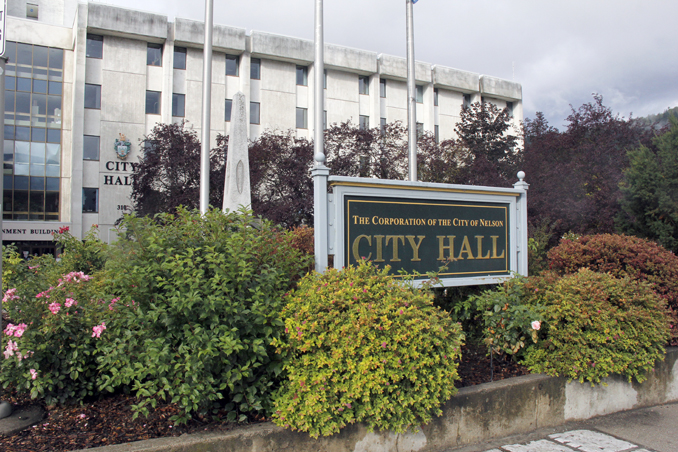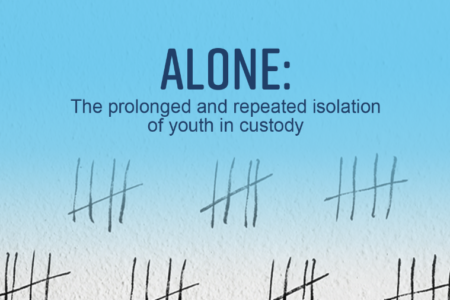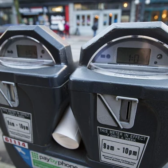Resolutions intended to ease financial burden for Nelsonites passed by city
The city is putting its money where its mouth is.
Without touching its mouth, that is. City council made good on passing into legislation the tenets of the 25 resolutions designed to alleviate the burden of the Covid-19 pandemic on Nelsonites.
Late last month city council put forth 25 resolutions designed to “provide support and relief to both individuals and businesses in the community in light of the negative economic impacts of the COVID-19 pandemic,” according to a city staff report.
Those resolutions included waiving penalties and disconnect fees on unpaid electrical bills, creating a discount period for water and sewer, and removing the secondary suite development fee.
Using a new provincial order that — while the province is under a state of emergency — allows municipal councils to adopt a bylaw on the same day that it has been given third reading, council expedited the bylaw amendments under Provincial Order M083.
Although the resolutions passed, Coun. Janice Morrison wondered about the financial toll to the city, and if the date on some items — such as the water and sewer discount period to May 15 — could be extended further.
“How many (in arrears) were there before Covid-19 started and how may have added to that package of people that would be getting the disconnects?” she asked.
“I am wondering if we should extend the date by one month. The reason I am wondering if we should make date extensions is … if the financial impact to the city was not too great at this moment … it would avoid more amendments to the policies.”
The ideas will have an impact on the city’s bottom line — impacting fees, charges and penalties normally enforced by the city — the city staff report noted, with some impact on certain payment deadlines.
City manager Kevin Cormack said the city needs a place and time to begin to work with people who haven’t been able to pay, creating a repayment option over 12 months. The original intent of the city was to cover the initial gap left by the spread of the virus.
City chief financial officer Colin McClure said, according to a comparative in April, and recognizing that it hasn’t been updated every week, unpaid water and sewer bills have increased from about $37,000 overdue last year to 97,000 this year.
“The plan was to look at this at a month-to-month basis … to make sure that people at least pay something,” he said.
“There will be a certain percentage of the population that will put off the payment since there won’t be a deadline to do so. So we want to keep those who can pay to pay.”
Ease the pain
The city will be moving to alleviate some of the financial burden on residents, waiving all patio rental fees for the remainder of the year, as well as sidewalk rentals and signs.
In addition, the city will also be waiving the $500 secondary suite development fee for the next 12 months.
In addition, the city will extend the waived penalties and disconnect fees on electrical bills until June 30. No penalties will be applied on any amounts owed between May 4 and June 30.
On the sewer side of the equation, a similar leniency will apply, with the city extending the water and sewer discount period to May 15.
The discount periods for both water and sewer have been extended to May 15.
“When these temporary measures are no longer necessary, the bylaws will be amended as needed to return them to their original state,” said city deputy corporate officer Gabriel Bouvet-Boisclair.
Accordingly, these changes will reduce city revenue. These revenue impacts were thoroughly considered by council when staff presented these recommendations at the April 23 special budget meeting.
By the numbers: Cash crunch
McClure said the city would face a revenue shortfall between $830,000 and $1,200,000, depending on the length of time and the nature of the restrictions remaining in place.
In its initial response to COVID-19, council eliminated a proposed two per cent taxation increase for 2020, which increased the deficit to $400,000 in the city’s preliminary 2020 budget.
The combination of the two means that the city is facing a financial deficit of up to $1,600,000 for 2020.
— Source: City of Nelson
Economic stimulus and financial stability plan
The key highlights of the financial stability plan include:
- zero percent property tax increase for 2020;
- zero percent fee increase for Nelson Hydro for 2020;
- zero percent increase in Nelson Hydro dividend to the city;
- zero percent wage increase for 2020; and
- general hiring freeze.
Other points include:
- the flexibility for the replacement of critical positions and hiring if there are grant-funded positions;
- minimizing travel, training, legal fees and other discretionary costs;
- the city has negotiated with its benefits carrier to reduce dental and extended health premiums by $40,000 per month;
- an allowance of $100,000 for recovery and/or wildfire response activities; and
- a request to the provincial government to fund the operating shortfall for transit.
Where it comes from, where it goes
The cost containment strategies will result in financial savings of a net $700,000 to $830,000, depending on the length and severity of the pandemic.
The city will need to draw down reserves by as much as $800,000 to balance the 2020 budget. The plan is contingent on working with all its employee groups to achieve these savings.


























